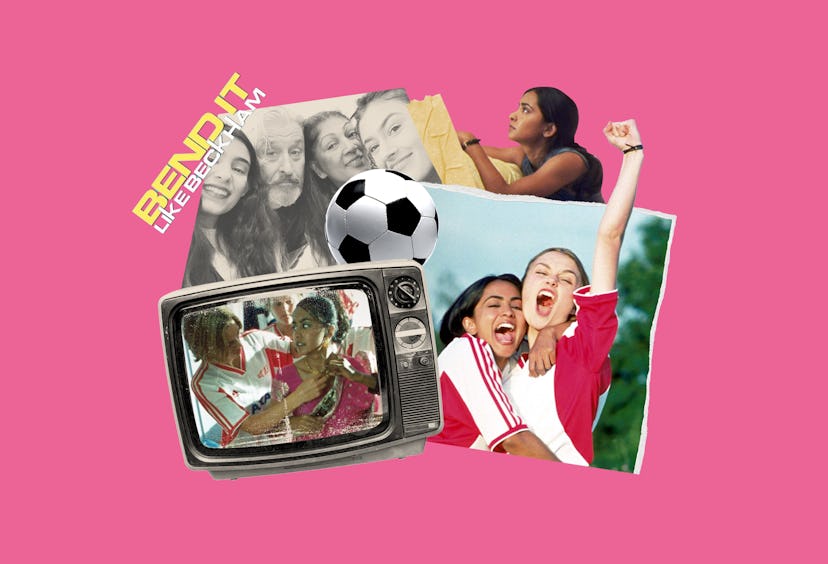Bend It Like Beckhamis 20 years old.
It has been two decades sinceGurinder Chadas classic football film first hit our screens.
Jess mum cooked curries like our mums did.

The colourful weddings they had looked like the ones we went to.
The natural switching from English to Punjabi sounded like home.
Joe replies with the infamous line, Jess, Im Irish.
Of course, I understand what that feels like.
It was difficult, he tells me.
Being Irish meant it was nearly impossible to be accepted in Britain.
It isnt a nice feeling, knowing he felt rejected from the country he called his home.
Anti-Irish abuse isnt totally a thing of the past either.
Her difference is inescapable and his attempts at allyship are ill-judged.
My mixed-raced identity means I sit on the axis of both cultures.
While my Brown skin colour marks my otherness overtly, my Irishness can remain hidden.
And, honestly, Ive never been concerned about being judged for being Irish.
Culturally, it is easier for Irish people to masquerade within British society too.
Finally, our everyday existence was a central role in cinema.
It made me feel, at last, our stories were worth telling.
And Im not alone.
Symi, 25, from Birmingham describes watchingBend It Like Beckhamas a mind-blowing experience.
It was something Id never seen done before.
The film made me realise what Id been missing, she says.
I didnt know I needed to see people who looked like me in film.
It was like seeing bits of my own life on screen.
Jess was Brown, Asian, and from London, like me.
How can a white man possibly understand the stigma and pressure of being a South Asian woman?
He cant and that is a privilege he should acknowledge.
Returning toBend It Like Beckham, 20 years later, brings with it a familiarity and warmth.
The characters are still recognisable all these years later.
But, Joes efforts to share Jess pain after she is racially abused still leaves me reeling.
This article was originally published onApril 19, 2022